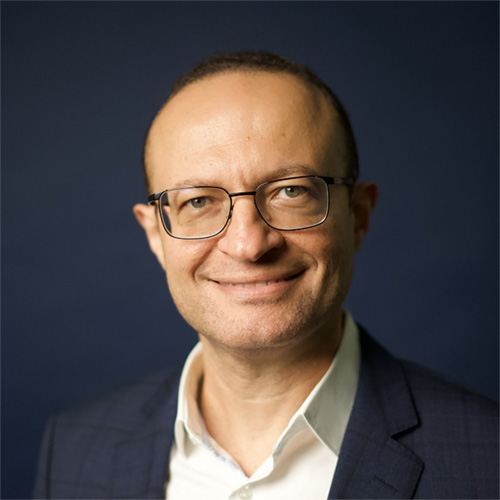Mohamed Ezz Eldin, Head of Innovative Medicines at Novartis Gulf, Gulf Countries, reflects on 2022’s impact on healthcare and predictions for the new year.

What will we remember about 2022? Two years after the greatest healthcare crisis of our generation, the year was geared to be one of transformation; building on the science, technology and collaboration investments made during the pandemic to set the foundation for the future of the healthcare ecosystem.
As we enter 2023, it gives me immense pride to know that the expectation for last year was realised. We started the year amid an undeniable evolution driven by innovation that is solely focused on improving patient care. We have already witnessed a number of significant initiatives and collaborations between healthcare stakeholders, public and private entities that will tremendously enhance the healthcare industry.
The UAE’s decision to make health insurance mandatory for residents across all seven emirates by March 31 2023, for example, will go a long way in creating a healthy population which will, in turn, enhance the economy and further strengthen the country’s reputation as an ideal place to live, work and do business.
Building on learnings from recent years, the intentional use of data and technology will also play a significant role in delivering healthcare in 2023 – both in terms of patient care and tackling crucial healthcare challenges. In fact, the market for Machine Learning tools in healthcare is forecast to exceed US$20 million this year, as evidence of their usefulness continues to grow across areas, such as medical image analysis and the detection and treatment of neurological disorders.
Drug discovery, in particular, is a key area where Machine Learning can play a pivotal role, delivering opportunities to support target validation, the identification of prognostic biomarkers, the analysis of pathology data in clinical trials and the potential side effects of new drugs. This is in addition to the technology’s power to support clerical work such as processing insurance claims, managing and analysing records and analysing data collected from patient wearables or in-home sensors used in virtual hospital settings.
Another important sector that has been the focus of research and increasing investment is cell and gene therapy, especially in the areas of rare and life-threatening neurological genetic diseases.
A recent whitepaper by the World Economic Forum stated that gene therapy can help millions of people globally if applied appropriately across all markets. By offering the ability to make precise changes to the human genome, gene therapies can address the root causes of various diseases, including cancer, heart disease, diabetes and sickle cell disease. With the promise that gene therapy holds to address diseases that affect tens of millions of patients around the world, it is encouraging to see that as of mid-2022, more than 2,000 gene therapies were in development worldwide, contributing to a global market value that is expected to reach nearly US$20 billion by 2027.
Indeed, with a clear roadmap built on digital technology, healthcare innovation and a strong focus on improving patient lives, 2023 commences with immense promise for patients, healthcare professionals and communities overall. To support this evolution and help alleviate some of society’s greatest disease burdens, last year, we at Novartis announced our transition into a ‘pure-play’ Innovative Medicines company with a clear focus on five therapeutic areas: cardiovascular, immunology, neuroscience, solid tumours and haematology.
Our portfolio of medicines is also shifting toward biologics and technology platforms – recognising their increasing power in tackling diseases. In addition to two established platforms in chemistry and biotherapeutics, three newer platforms – gene and cell therapy, radioligand therapy and ‘xRNA’ – are being prioritised for continued investment into new R&D capabilities and manufacturing scale.
We recognise that our mission to reimagine medicine is more important than ever before, and that is why we remain committed to accelerating efforts to seek novel approaches for developing medicines, educating healthcare providers and optimising outcomes for patients everywhere.




